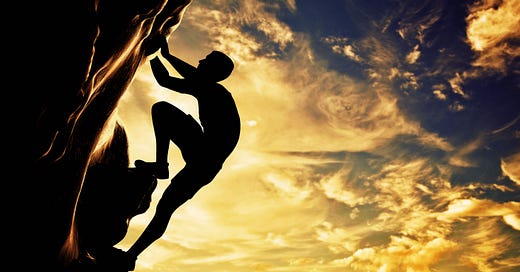Pastor, Who Is Holding Your Rope?
In the Netflix and Amazon Prime documentaries Free Solo, The Alpinist, and The Dawn Wall, free solo climbers, Alex Honnold, Marc-Andre’ Leclerc, and Tommy Caldwell scale some of the most treacherous rock faces in the world.
Free soloing is climbing without the assistance of other climbers and with no safety ropes, protective gear, or harnesses. Free solo climbers rely only on their own strength, ability, and mental determination. So, when a mistake is made or outside forces intervene, free solo climbers rarely get a second chance. Experts have indicated that most deaths attributed to free solo climbing could have been avoided by depending on climbing partners and safety ropes.
Belaying refers to a variety of techniques used in climbing to exert friction on a climbing rope so that a falling climber does not fall very far. A belayer is a climbing partner who secures the lead climber at the end of a rope and belays out rope as needed. So, when a lead climber loses his or her footing, the belayer secures the rope, allowing the climber to regain a foothold to continue the climb.
Barna Research recently discovered that 61% of pastors are lonely and have few close friends. So, nearly two-thirds of all pastors don’t have someone who is willing to hold their rope. In his book, Made for Friendship, Drew Hunter indicates that most pastors have friends but very few know true friendship. In fact, what most pastors call friendship is actually acquaintanceship. Their relationships are wide but not very deep.
Pastors will never trust their struggles with sin, seasons of spiritual renewal, frustrations about church members, or dark night of their soul with an acquaintance. C.S. Lewis said friendship is two people looking at something together and saying to each other, “What? You too? I thought I was the only one.”
Some pastors believe if they divulge their loneliness or that they too publicly struggle with life, it will minimize their ministry effectiveness or compromise their biblical message. Others have gotten burned by getting too close to church members. Pastors often struggle with the balance between when to be a pastor and when to be a friend, especially when spiritual accountability is necessary. The root of these concerns is that pastors and their congregants have put too much emphasis on the position and not the person.
Most pastors couldn’t imagine taking the personal risk required to participate in such an extreme sport as free solo climbing. And yet, they continually lead their ministry organizations depending only on their own strength and talent. As a result, their personal risk and the risk to their church could be just as catastrophic. Some are gifted enough to fake it and succeed alone for a time. But their talent will only take them so far. And a time will come when the inherent risks of free solo ministry will cause them to fall…also alone.
How can pastors lead their congregants to experience true community when they don’t have the resolve to go there themselves? The author of the book of Ecclesiastes answers it this way: “Two are better than one because they have a good return for their hard work. If either should fall, one can pick up the other. But how miserable are those who fall and don’t have a companion to help them up! Also, one can be overpowered, but two together can put up resistance. A three-ply cord doesn’t easily snap” (Eccl 4:9-12).




